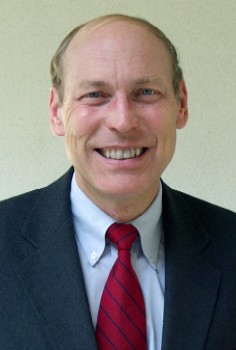

BS, USMA, West Point, NY, 1969
J.D., George Washington Univ., Washington, DC, 1979
MHA, Baylor Univ., Waco, TX, 1981
Ph.D., George Washington Univ., Washington, DC, 1988
Dean, Sch. Bus. Admin., Marymount Univ., Arlington, VA, 2002
Assoc. Dean, Sch. Bus. Admin., Marymount Univ., Arlington, VA, 2000-02
Sen. Prg. Mgr. Outcomes Mgmt. Initiative, Walter Reed AMC, Washington, DC, 2000
Dir. Hlth. Srvc. Admin, Graduate Sch. Bus. & Entrepreneurship, Nova Southeastern Univ., Ft. Lauderdale, FL, 1999-2000
Dep. Dir., Div. Hlth. Srvc. Admin., School Med., Uniformed Services Univ. Health Sciences, Bethesda, MD, 1995-99
Dep. Chief Staff, TRICARE Region, Washington, DC., 1994-95
Program Dir., U.S. Army-Baylor Univ., Academy of Health Sciences, Ft. Sam Houston, TX, 1992-94
Dep. Dir., U.S. Army-Baylor Univ., Academy of Health Sciences, Ft. Sam Houston, TX, 1990-92
Sen. Hlth. Pol. Anal., OTSG, Washington, DC, 1988-90
Pers. Pol. Anal., OTSG, Washington, DC, 1983-88
Chief. Clin. Spt. Div., Moncrief ACH, Ft. Jackson, SC, 1981-83
Resident, Moncrief ACH, Ft. Jackson, SC, 1980-81
I decided to attend Baylor because it was, and still is, the premier education for an MSC and for any administrator who wishes to be as competent as possible in the management of healthcare organizations.
What I remember most is not one particular classmate but the extraordinary range of experiences that they brought to the classroom. We had aviators, nurses, logisticians, sister services - all brought a fascinating and impressive professional history with them.
My residency site was Moncrief Army Hospital, Ft. Jackson. It was an outstanding experience because of its size and support of a training installation. I entered Baylor as a captain and left as a major.
My proudest accomplishments as the Director of the program were to double the class size without increasing staffing, expand the residency sites to include OSD(HA) as well as civilian agencies, select more sister service students and GS students, implement a PT program to maintain the physical fitness and esprit of the students (one of the most amusing aspects of implementing this policy was explaining/outfitting the students from the sister services and GS students who did not have a PT program like the Army students did and, therefore, did not know what to wear or what was an appropriate exercise regimen at “oh dark thirty”), create a Center for Healthcare Education and Studies, and conduct research on executive competencies with Dr. Finstuen and COL Brooke.
My recommendation for the future is to ensure that we maintain the healthcare orientation of our program while increasing the amount of business courses. Healthcare today is clearly a business but with a very human orientation and an obligation to community service.
Dr. Hudak is a Fellow of the American College of Healthcare Executives. He has published extensively, writing on executive management competency and quality assessment for a variety of journals. Dr. Hudak earned his Bachelor of Science degree at the United States Military Academy, West Point. He received a Master of Health Administration from Baylor University, and a J.D., as well as a Ph.D. in Health Services Administration, from The George Washington University. Dr. Hudak is a member of the Bars of Florida and the District of Columbia.